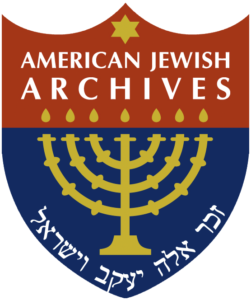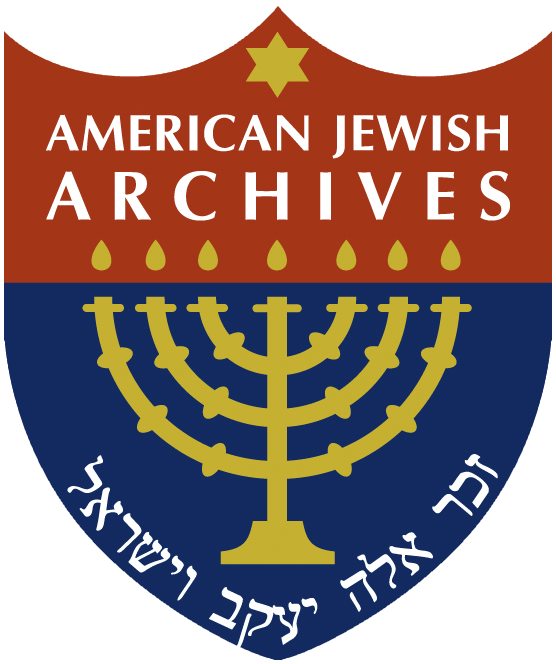BIOGRAPHICAL SKETCH
Joshua O. Haberman was born in Vienna in 1919 to Berta and Isser Haberman, who owned a mail-order business. After graduating from Gymnasium, he simultaneously enrolled at the University of Vienna (to study philosophy) and at the Vienna Jewish Theological seminary. Little more than a semester later, Haberman’s studies were interrupted by Germany’s annexation of Austria (the Anschluss) in March 1938. To escape the Nazis, Haberman applied to Hebrew Union College in Cincinnati, Ohio. The president of HUC, Julian Morgenstern, tried to convince him that his theological views would be more in line with the Jewish Theological Seminary (New York, N.Y.), but Haberman insisted he wanted to study at the Reform institution. He was subsequently admitted and came to the U.S. with his sister, his parents following after. He received his B.A. in 1940 at the University of Cincinnati and was ordained at HUC in 1945. While a student in Cincinnati, he met Maxine Rudin, whom he married in 1944. Haberman later earned his doctorate in modern Jewish philosophy at HUC in 1970.
One of six rabbis in his extended family, Haberman was involved in the rabbinate for seventy-two years, occupying pulpits at Congregation Shaarei Shomayim, Mobile, Alabama (1944—1946), Temple Beth Zion, Buffalo, N.Y. (1946—1951), Har Sinai Temple, Trenton, N.J. (1951—1968), and Washington Hebrew Congregation, Washington, D.C. (1969—1986). He was named Rabbi Emeritus of Washington Hebrew Congregation after his retirement and remained active at the congregation until his death. Haberman was a dedicated member of the Central Conference of American Rabbis, serving on the executive committee from 1967 to 1969. He also served as president of the Washington Board of Rabbis from 1982 to 1984. After his retirement, he became a member of the National Association of Retired Rabbis, serving as president from 1999 to 2000.
In addition to his duties as a pulpit rabbi, Haberman was a scholar who published five books, wrote many articles, and taught at various colleges. He held adjunct professorships at Rutgers University, American University, George Washington University, Georgetown University, Washington Theological Union, and Wesley Theological Seminary. His passion for scholarship culminated in 1984, when an anonymous donor gifted Rabbi Haberman one million dollars to use as he saw best. In response, he established the Foundation for Jewish Studies in Washington, D.C. as an organization to further adult Jewish education. His dream was to make high quality Jewish education accessible to any/all Jewish learners, no matter their background or level of knowledge. The organization sponsored guest lectures by scholars from around the world on a variety of topics related to Judaism and religious studies in general. After his death, it was renamed the Haberman Institute for Jewish studies in his honor and it is still thriving today.
Interfaith dialogue was very important to Haberman throughout his life. He maintained a dialogue with Evangelical leaders, the Roman Catholic diocese of Washington, D.C., and the World Community of Islam of the West. He had an especially keen interest in the relationships between Evangelicals and Jews, and in 1978 he was given the Brotherhood Award by the National Conference of Christians and Jews. He co-developed the Catholic-Jewish Dialogue group in 1983, which he remained active with for decades. He was invited to speak at the National Prayer Breakfast at the White House multiple times and represented the Jewish community at the national prayer service for 9/11 and subsequent memorials held at the National Cathedral.
As a self-proclaimed “ardent Zionist,” Haberman held dual Israeli and American citizenship. He began traveling to Israel in the 1950s and 60s, including a year-long sabbatical in 1963-1964 and a summer volunteering at Kibbutz Yassur in 1968. He spent longer periods in Israel after his retirement. He was involved in multiple political organizations including the Jewish Institute for National Security Affairs, serving on the Board of Directors of the Ethics and Public Policy Center from 1983 to 1989, as well as on the Advisory Committee on Ethical Values of the United States Information Agency (1982—83). Three of his four children and their families live in Israel.
Haberman and his wife had four children; Deborah, Judith, Daniel, and Michael. Joshua Haberman died in 2017 at the age of 98.
Information taken from Joshua Haberman’s memoirs Three Cities in the Making of a Rabbi: Vienna, Washington, and Jerusalem.

